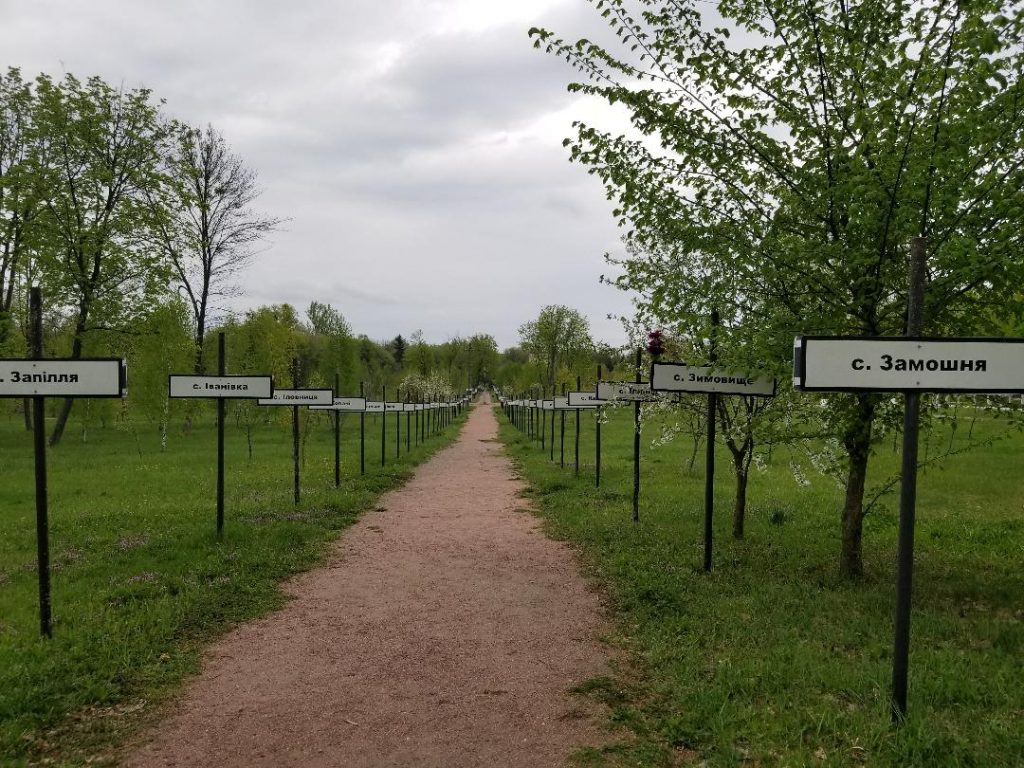
Chernobyl is still changing: Four enduring stories and a recent one
Posted: 28th April 2022
By Susan D’Agostino | April 25, 2022

Alley of abandoned villages – 162 plaques with the names of permanently evacuated settlements during 1986-1991 after the Chernobyl accident. Credit: Margarita Kalinina-Pohl (2018).
“One of the atomic reactors has been damaged,” a Radio Moscow broadcast announced about the Chernobyl Nuclear Power Plant on April 28, 1986—nearly three days after the accident. “Measures are being taken to eliminate the consequences of the accident. Aid is being given to those affected. A government commission has been set up.”
World citizens did not know then that the event would register as the world’s worst nuclear disaster. They did not know that two plant workers had died in the explosion at Chernobyl, that 28 more would die within weeks from acute radiation poisoning, or that thousands would be diagnosed with thyroid cancer over time. They also did not know then that thousands of workers would need to continue decommissioning work at the plant for decades. And they likely could not have imagined how Chernobyl’s legacy would continue to change in dramatic ways over time.